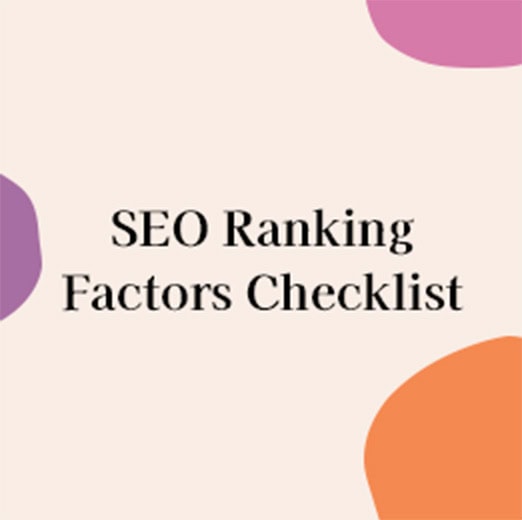Do You Have an Entrepreneurial Spirit?
Here are 5 qualities of successful fashion business owners, and actionable tips to help you grow in your entrepreneurship journey
Psst…are you lying awake right now, wondering…
“Is entrepreneurship right for me?”
In my job as a fashion business coach and college instructor, I often meet people who wonder this too!
And while I can’t answer this question for you, I’ve put together this blog for you to reflect on yourself as an apparel business entrepreneur.
In each of the five sections we’ll explore one common quality that successful fashion business entrepreneurs possess. If you realize that one or more of those qualities aren’t exactly your strong suits, don’t worry! Self-awareness is the first step. And to assist you in your journey toward building a strong, sustainable business, you’ll find simple actionable steps at the end of the sections to help you develop in each area.
Thirst to learn and observe the world
“I started the brand in 2020 after coming face-to-face with the knowledge of the high suicide rates among farmers while on one of my sourcing trips to India. It was heart-breaking to learn that more than 270,000 cotton farmers alone have committed suicide since 1995.”
- Adila Coker, Founder of The Good Tee, Author of Source My Garment, and Sustainable Apparel Consultant
Successful entrepreneurs go out into the world with their eyes wide open. They allow the world to reveal to them the problems that need fixing. With an open mind and curiosity, they take the time to ask questions and explore topics about the human condition, psychology, current events, economics, natural environment, and technology in order to uncover untapped opportunities.
Spending time with people from different cultures and age groups also helps to inform what to design and offer in the marketplace—and increases the chances of creating a commercially viable product.
Try this:
Record and revisit moments of inspiration: Use a journal or create voice memos on your phone to capture your thoughts, observations, and ideas throughout the day.
Create a digital folder to store your ideas. Keep interesting images, articles, or any other media that resonates with you, all in one place. Use this folder as a resource for future reference and inspiration. Or try creating inspiration boards on Pinterest.
Talk with people IN-PERSON! Converse with people from different backgrounds and perspectives. Be in the moment with them, and actively listen to their stories, ideas, and insights. Such interactions can stimulate new ways of thinking and spark innovative ideas to solve real world problems.
Drive to see a vision come to life
“The greatest privilege of any designer is to watch your goods be tried on, and have people fall in love with them—and exchange this ambiguous thing called money for something that you made by your hands. That is a feeling that I still cherish. It feels like a huge privilege to have that exchange.”
- Glencora Twigg, Design-Thinking Leader in Sustainable Product, Project and Program Management
The drive to realize their vision gives fashion entrepreneurs the courage to take calculated risks. They know that in order to succeed and reach their goals, they have to take real ACTION without always knowing what the outcome will be.
Entrepreneurs don’t expect everything to be perfect from the start. They accept that hard work, learning from mistakes, and being open-minded to evolve and adapt to feedback is part of the game to building a winning business.
Try this:
List goals for what you want to accomplish. Your goals should include specific economic objectives and include deadlines.
Determine the critical actions you need to take. If you have a team, write down specific tasks—daily, weekly and monthly—and assign them to the team members responsible for achieving those tasks. Keep an up-to-date spreadsheet or use project management tools to stay organized and accountable.
Attention to detail
“People think as designers, we sit on this golden throne, we wave our wand, and we design. I can honestly say that I spend less than ten percent of my time designing. The rest of my time is technical execution. I'm a stickler for pattern making. I’m a stickler for accurate grading, making sure that there's consistency within my sizes no matter what it is that I produce. Is it a woven, is it a cotton knit, is it a sweater, is it a heavy canvas, is it a chiffon? It needs to be consistent.”
- Stella Carakasi, Cofounder & Chief Design Officer of Stella Carakasi
Entrepreneurs are often perceived as “big picture” thinkers—but successful entrepreneurs know that it’s important to pay attention to details in order to deliver the best product and experience for their ideal customer.
Improving on the details requires consistency and discipline. It’s often much easier to keep dreaming up ideas, adding new and novel things to the to-do list. But the key is for the entrepreneur to think about the future they are aiming to create, while working on the priorities of today.
Technical aspects of garment production and logistics are obvious examples of where to pay attention to details, but the intangible details are important too. The details of how a brand conducts customer service can also elevate that brand above the rest.
An entrepreneur’s attention to detail in finance and business administration (although not glamorous) is also essential to the health of their business. For example, they know that cash flow is the life blood of their business and analyze their financial data carefully in order to operate sustainably.
Try this:
Plan it out. Take the time to write a business plan or use a lean canvas (1-page business plan). Clearly define the destination for your brand, and then reverse engineer—working backwards to plan how to get there.
Review your goals. Don’t lose sight of your big picture goals. Review them monthly or at least every quarter to make sure you aren’t going off course.
Run your business like a business. Do you know how much money is coming into your business at any given timeframe? Understand your numbers and manage your cash flow. If there’s going to be a month with a large expense, know in advance so you can plan ahead and not run into a cash shortage.
Closely monitor your sales. Run monthly reports to analyze your top sellers by units and dollars. Since the production cycle can take several months, make projections to assess your inventory situation so you don’t run out of stock during important selling seasons.
Strong interpersonal skills
“The key to success is to find suppliers and vendors who believe in you and will stick with you through the ups and downs. I was lucky to work with great suppliers whom I was able to build long lasting relationships with. I always paid them on time, and treated them with utmost respect and integrity in every transaction. I greeted their staff whenever I stepped foot into the factory, got to know them as individuals and brought them gifts during the holidays. I basically treated them like family, because through the blood, sweat and tears, they are your extended family.”
- Glynis Tao, Founder of Chase Your Dreams Consulting
It’s very rare that a person possesses all the skills necessary to run an apparel business. Some entrepreneurs operate as “solopreneurs” in the beginning stages before hiring staff, but that doesn’t mean they don’t rely on the talent and skills of A LOT of other people.
When it comes to launching a new fashion line NOBODY can do it all. Yes, entrepreneurs need to have clear business objectives and goals, but they must never forget to treat people as PEOPLE, and conduct their business with a posture of empathy, understanding and generosity.
Try this:
Ask people what they need in order to succeed. When working with other people, ask them how you can make their lives easier. For example: What’s the best way to relay information? Do they prefer email or direct messaging? What time of the day is usually best to schedule regular meetings? What do you need to prepare ahead of time in order to respect their time?
Make networking a priority. We’re all busy, but there’s no excuse not to network. Take the time to connect and meet new people at both in-person events and online. Don’t forget to contribute to your community as well by offering to connect people you know with each other. Networking is not only good for business, but a great opportunity to build authentic, long-lasting friendships with people who have aligning values.
Willingness to collaborate and seek guidance
“I find that very highly creative people need a business partner, and people who are deeply business oriented need a creative partner. If you don’t have both of those in this industry, it’s a loss. We’re not artists, we’re designers. And the design space is about where commerce and aesthetics meet. So I think that partnership is exciting and beautiful.”
- Glencora Twigg, Design-Thinking Leader in Sustainable Product, Project and Program Management
Successful fashion entrepreneurs are open to working with others who compliment their skill sets. Setting egos aside, they are willing to listen and create work environments that allow for the exchange of ideas and expertise. And when they feel stuck, instead of faking their way through situations, they seek guidance from their network.
Try this:
Own your weaknesses and ask for help. Every entrepreneur has their strengths and weaknesses. Write a list of areas in your business that need improvement (e.g. web design, accounting, marketing, etc.), then prioritize those items and start reaching out to people who can help you.
Keep things fresh and exciting for yourself and your target audience. Engage with other fashion designers, stylists, photographers, or influencers to do joint projects, photo shoots, or even fashion shows or pop-up events. These experiences will help you develop teamwork, negotiation, and communication skills while you learn from others' expertise and feedback.
How are you feeling?
Now that we’ve examined some common qualities of successful fashion entrepreneurs, and have heard from my friends in the fashion industry, how do you feel about yourself as a fashion business owner? Which of the recommended strategies are you planning to try first?
Everyone has unique strengths and weaknesses but it doesn’t mean you shouldn’t chase your dreams. With the right mindset and commitment to your vision, you can continuously improve and grow along the way!
__________________________________
But that’s not all!
Ready to keep working towards entrepreneurial success?
Check out these additional free resources that I’ve created to help you achieve your goals:
Video Tutorials for Fashion Brand Owners




